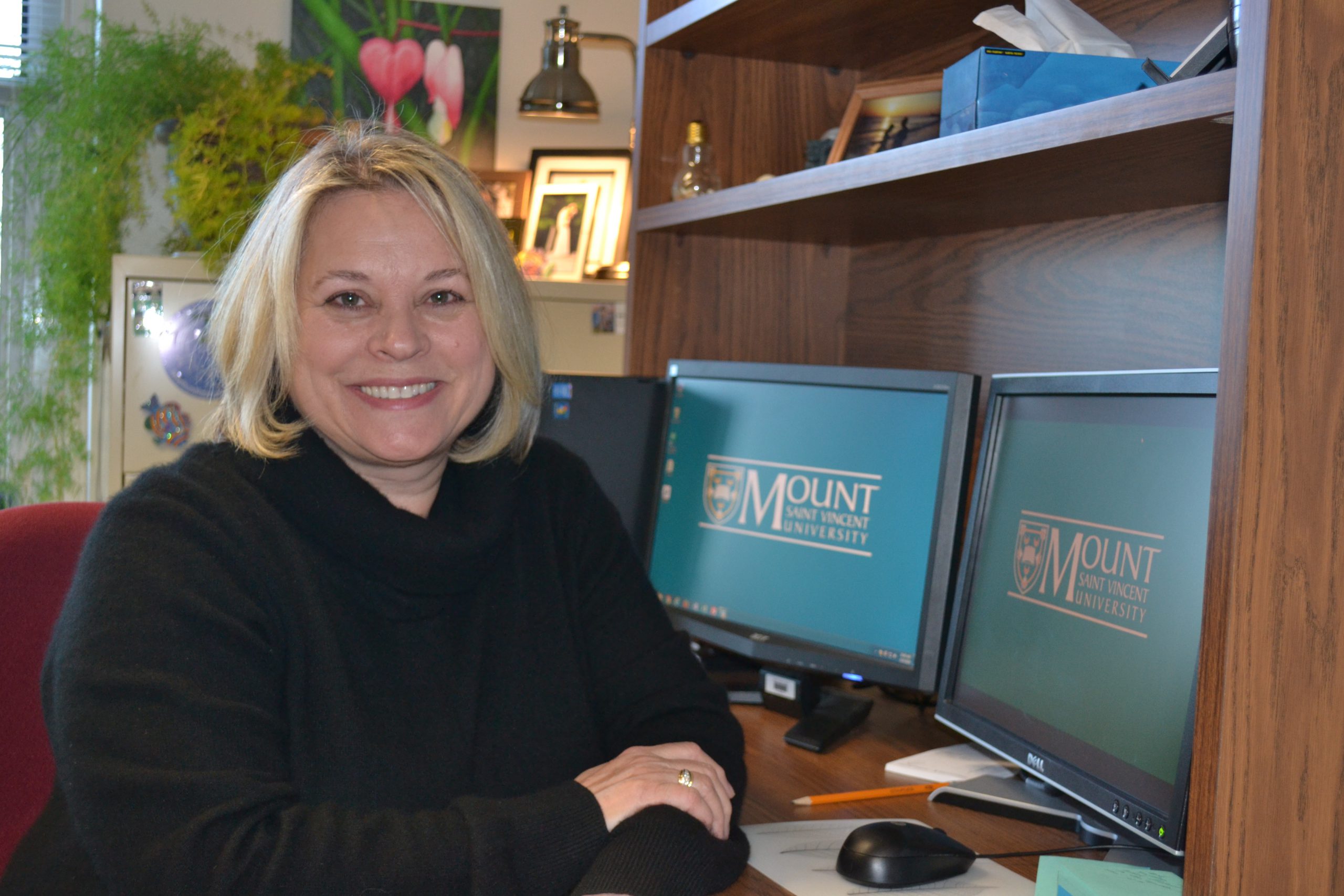New Child and Youth Study prof passionate about the power of play

Christine McLean describes joining the Department of Child and Youth Study in July 2016 as “coming home again.” As a graduate of the program more than 30 years ago, it was always Christine’s hope that she may one day return to the Mount in some capacity. As fate would have it, Christine’s office is now only three doors down from her old dorm room, though things have changed a bit. “There were two beds along either side of the wall and a desk along the right side. And if you wanted to make a phone call, there was one central pay phone. The closet still looks the same.”
Following her studies at the Mount, Christine completed her Education Degree at Acadia University in 1984 and, shortly after, a Master’s of Early Childhood Education at the University of Cincinnati. In 2013, Christine made the decision to embark on her PhD in Early Learning through the University of Toronto.
Upon reflection, Christine says she has always been curious about children and their
well-being. “I played school as a kid and took care of all of the neighbourhood kids. I have always been drawn to working with children and being involved in teaching. This was my life’s path and why I chose to come to the Mount so many years ago because there was a degree in this area.”
Prior to her recent return to the Mount, Christine worked in Newfoundland with the provincial government developing policies around early childhood education and childcare. She also worked at the College of the North Atlantic in St. John’s, first as an instructor and then as the Manager of the Early Childhood Education program. During this time, she also made numerous presentations across the region and across the country on the topic of play and play-based learning.
Passionate about play
When asked about her favorite courses to teach, Christine answers with no hesitation. “I have a passion for play and am a big advocate for play so I love teaching the course Play and Development. Childhood is changing and children are spending more time in front of screens. They are involved in things like organized sports and music lessons, which is great, but it doesn’t put them in charge. Play is a voluntary activity and through this, kids learn how to work together to solve a problem. It fosters creativity, problem-solving and conflict resolution.”
As an advocate for play, Christine has also committed her research to this topic. She is focused on examining the factors relating to the co-construction of pedagogical documentation.
“Co-construction involves including the child in the documentation process and looking at children as fellow human-beings who are capable, competent and curious. Reflection is important because it makes you stop and wonder what you could do tomorrow to change things up and keep it fresh. It’s more than just putting out worksheets and crayons. This type of thinking makes life more interesting for early childhood educators and for the children who are learning.”
Currently, early childhood educators are required to document children’s learning experiences over the course of days and months. This can be taxing and particularly difficult when educators are balancing the needs of a classroom and also reflecting on this piece after the fact. Christine feels strongly that documentation is an important and necessary component of the work of early childhood educators, but hopes that her research will identify more effective and efficient ways of documenting learning in day-to-day activities.
“My research could potentially change the way educators document children’s learning experiences. It could lead to more reflective practitioners and also more reflection on the part of the children in their learning. It could also affect the way subjects are taught in post-secondary institutions across the country if evidence suggests that co-construction is effective.”
Over the next six months, Christine will be interviewing and observing early childhood educators in Halifax to explore what supports co-construction and what some of the challenges are. What excites Christine about this project is that it is a relatively new thinking in the field so she is curious to see how it can help with professional development for new teachers.
Dedicated to lifelong learning
When asked what excites Christine most about being a professor her big smile says it all: “The students excite me. It is their energy and knowing that they are embarking on careers and that I could have a role in their journey. I bring a lot of experience to the classroom so being able to share those experiences and hearing about students’ experiences is rewarding. I am excited by the students and their potential and what will become of them. These are the people who are going to be creating memories for future generations and I want to help them create good ones.”
Christine also sees the value of play in her own life. She loves painting, collecting rocks and exploring outdoors. But what really ignites her soul is teaching and continuing to learn more about her field. “The more you learn, the more you realize there is more to learn. It opens you up to lifelong learning. There is a need to shore up this field of early childhood education. I think knowing I can make a difference through teaching and my research inspires me. I’m passionate about the field and the people who work in this field.”